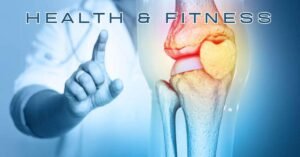Your body depends on water to survive. Every cell, tissue, and organ in your body needs water to work correctly. For example, your body uses water to maintain its temperature, remove waste, and lubricate your joints. Good hydration is essential for overall good health. Making sure you get enough water every day is a crucial step in maintaining your health. Path to improved health. Most people have been told they should drink 6 to 8 8-ounce glasses of water each day. That’s a reasonable goal. However, different people need different amounts of water to stay hydrated. Most healthy people can stay well hydrated by drinking water and other fluids whenever they feel thirsty.

While plain water is the best option for hydration, other foods and beverages can also help. Water is found in soups, broths, fruits, and vegetables (like watermelon, tomatoes, and lettuce), and fruit and vegetable juices. Milk, herbal teas, and other beverages can also help you stay hydrated, but you should limit calorie-dense, sugary drinks. Caffeine and hydration: Even some caffeinated beverages (like coffee, tea, and soda) can add a small amount to your daily water intake; most people are not harmed by 400 mg of caffeine.
It is advisable to restrict caffeine-containing beverages, nevertheless. You will urinate more frequently if you consume caffeine. Staying hydrated may become challenging as a result. Additionally, it may cause jitters or anxiety.
If you want to exercise for more than an hour at higher-than-normal levels, sports drinks may be beneficial. They can give you more energy because they contain electrolytes and carbohydrates. They facilitate the body’s absorption of water. However, the additional sugar in some sports drinks contributes to their high-calorie content. They might also have a lot of sodium (salt). Verify the label’s serving size. Typically, a single bottle holds multiple servings.
Caffeine is also present in several sports drinks. Keep in mind that 400 milligrams is the maximum quantity of caffeine that is safe to take daily.
Sports drinks and energy drinks are not the same thing. The caffeine content of energy drinks is often high. Additionally, they contain substances like taurine, ginseng, and guarana that can overstimulate you. These are unnecessary items for your body. The majority of these beverages also contain a lot of added sugar. Doctors advise against giving energy drinks to kids and teenagers. These beverages do not provide adequate hydration because of their high caffeine content.
If you have trouble staying hydrated, the following advice may be helpful:
Throughout the day, carry a bottle of water with you. Please bring a reusable water bottle and fill it with tap water to cut expenses.
Try adding a piece of lemon or lime to your drink if you do not enjoy the flavour of plain water.
Water should be consumed prior to, during, and following exercise.
Drink some water when you are hungry. Hunger and thirst are frequently confused. Drinking water will not satisfy true hunger. Water consumption may also support a successful weight-loss strategy. According to some studies, drinking water can make you feel fuller.
Use a routine to help you remember to drink water if you struggle with it. Drink water, for instance, when you get up, have breakfast, lunch, dinner, and bedtime. Alternatively, start each hour with a modest glass of water.
When dining at a restaurant, sip water. It is free and will help you stay hydrated.
Considerations
You risk being dehydrated if you do not drink enough water. This indicates that your body is not getting enough fluid to function correctly.
If you are dehydrated, your pee may be a sign. You are adequately hydrated if it is colourless or pale yellow. You can be dehydrated if your urine has an amber or dark yellow tint.
Additionally, older folks are more vulnerable. Your brain may become less sensitive to dehydration as you age. It does not communicate thirst.
Keep in mind that over half of your body weight is composed of water. Every day, you lose water through breathing, perspiration, and toilet breaks. In warmer weather, while you are exercising or when you have a fever, you lose water even more quickly. Rapid water loss might also result from diarrhoea and vomiting. To prevent dehydration, be sure to consume a lot of water actively.
Water makes up around two-thirds of your body weight. Water is necessary for every cell in your body. Additionally, water is the foundation for all bodily fluids, such as blood, urine, perspiration, saliva, and joint fluid. Without water, no living creature can survive. How can you tell whether you are getting enough alcohol?
Sweating, using the restroom, and even simply exhaling cause your body to lose water. To make up for what you lose, you must drink adequate water. Dehydration can occur when you do not drink enough water.
Headaches and extreme thirst are indicators that you are becoming dehydrated. You can have parched lips or skin. Additionally, when your body tries to save water, your urine may become darker. Mild dehydration should be treated with fluid consumption.
Severe dehydration can result in confusion, fainting, difficulty urinating, and fast breathing and heartbeat. It may be life-threatening at this point, so you should get medical attention very quickly. Restoring your body’s fluid balance may need more than just drinking water. Fluids may need to be administered intravenously, which involves inserting a needle or tube into a vein.
Drinking adequate fluids may be necessary for reasons other than preventing dehydration, according to recent NIH-funded research. NIH cardiac researcher Dr. Natalia Dmitrieva has researched the long-term consequences of dehydration. According to one study, middle-aged adults who did not drink enough water had a higher risk of developing chronic illnesses. Heart failure, diabetes, dementia, and chronic lung disease were among the illnesses.
These individuals also had a higher chance of dying young and aging more quickly. Thus, maintaining adequate hydration may contribute to your continued health as you age.
Numerous criteria, such as your age, place of residence, and body weight, influence how much alcohol you should consume each day. Additionally, the rate at which your body loses water varies. For example, you need to drink more water when exercising or being active in hot weather since you perspire more. However, the average amount of fluids that doctors advise men and women to consume each day is 13 cups and 9 cups, respectively.
The significance of staying hydrated
It is essential to drink adequate water every day for a number of reasons, including maintaining healthy organs, preventing infections, lubricating joints, delivering nutrients to cells, and controlling body temperature. Drinking enough water also enhances mood and the quality of sleep.
According to experts, the average lady should drink about 11 cups of water each day, while men should drink about 16. Additionally, not all of those cups must be made with ordinary water; some may be made with coffee or tea or water flavoured with fruit or vegetables (lemons, berries, or slices of orange or cucumber).
However, when attempting to stay hydrated, Walter Willett, a professor of epidemiology and nutrition at the Harvard T.H. Chan School of Public Health, advises against consuming sugar-sweetened beverages. Americans are “conditioned to expect high levels of sweetness in everything…. You might say we are dehydrated because we drink so much soda, fruit juice, and other sugar-sweetened beverages. By that, I mean we drink beverages that harm our health,” Willett stated in a CNN article published on September 28, 2017. The majority of vitamin waters and energy drinks are even sugar-filled and useless.
One of the most crucial dietary components is maintaining adequate hydration; consuming enough liquids to keep the body’s fluid balance ensures that all physiological processes may proceed normally. Johanna Hignett examines how much water we should consume, the kind of beverages we should choose, and the symptoms of dehydration.
Why are fluids necessary?
For several vital bodily functions to occur, water is necessary. Fluid in the body is essential for many processes, including the circulatory system’s transportation of crucial nutrients, oxygen, and glucose to cells and the kidneys’ elimination of waste items that we no longer desire.

We have a special ability to control our body temperature, especially in hot weather, by sweating more and losing water via our skin. This helps to keep our body temperature steady. People who live (or travel to) a hot area or who engage in sports activities that cause them to lose more fluid than usual will need to drink more fluids more frequently to replace the water they lose via perspiration.
As we age, our body’s water content varies; babies have higher fluid levels than adults. Although fluid levels are still lower in older people, staying hydrated is crucial for people of all ages.
Why is it essential for us to stay hydrated?
We start to feel the effects of even a slight decrease in fluid levels because they are so vital to the body. Migraines, fatigue, and dry mouth can all be symptoms of low fluid levels in the body. On a longer scale, dehydration can lead to kidney stones, urinary tract infections, and constipation. Drinking enough water regularly can assist with these.






